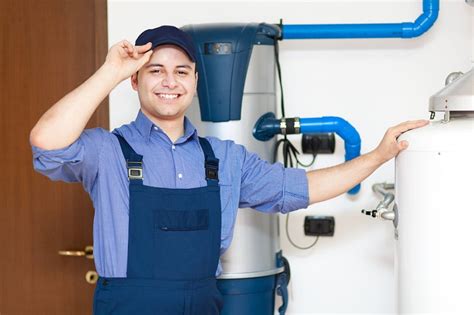Hot Water Repairs: How to Get Them Done
Dealing with a sudden loss of hot water is incredibly frustrating. Whether it's a leaky pipe, a malfunctioning water heater, or a more complex issue, knowing how to navigate hot water repairs can save you time, money, and a lot of cold showers. This comprehensive guide will walk you through the process, from identifying the problem to finding the right professional.
Identifying the Source of the Problem
Before you call a plumber, try to pinpoint the problem's source. This helps you communicate effectively with the repair service and can even help you avoid unnecessary expenses.
Is the problem affecting only hot water or both hot and cold?
If only your hot water is affected, the issue likely lies within your water heater or the hot water supply lines. If both hot and cold water are affected, the problem is likely more widespread, potentially related to your main water supply or a significant leak in your plumbing system.
Is there a leak?
Check for visible leaks around your water heater, pipes, and faucets. Listen carefully for unusual sounds like dripping or hissing, which can indicate a hidden leak. Even a small leak can cause significant water damage over time.
Is your water heater pilot light out (for gas water heaters)?
If you have a gas water heater, check the pilot light. If it's extinguished, relighting it might restore your hot water. However, if you're uncomfortable doing this, call a professional immediately.
Is your water heater making unusual noises?
Popping, banging, or rumbling sounds from your water heater could indicate sediment buildup, a faulty heating element, or other internal problems requiring professional attention.
How to Find a Reliable Hot Water Repair Service
Finding a reputable plumber is crucial for efficient and safe hot water repairs. Here’s how to approach your search:
Check Online Reviews and Ratings:
Websites like Yelp, Google My Business, and Angie's List provide valuable customer reviews and ratings for local plumbing services. Look for companies with consistently positive feedback and a history of resolving hot water issues effectively.
Ask for Referrals:
Friends, family, neighbors, or colleagues who've recently had plumbing work done can offer valuable referrals. Personal recommendations often provide the most reliable insights into a company's quality of service and professionalism.
Verify Licensing and Insurance:
Ensure the plumbing company is licensed and insured in your area. This protects you from potential liability in case of accidents or damages during the repair process. Don't hesitate to ask for proof of their licensing and insurance.
Get Multiple Quotes:
Before committing to a particular service, obtain quotes from at least three different plumbers. This allows you to compare pricing, services offered, and overall value. Be sure the quotes include a detailed breakdown of the costs involved.
What to Expect During the Repair Process
Once you've selected a plumber, you can expect the following:
Thorough Inspection:
A qualified plumber will conduct a thorough inspection to pinpoint the exact cause of the hot water problem. They'll check your water heater, pipes, and relevant fixtures to identify any leaks, blockages, or malfunctioning components.
Repair or Replacement:
Depending on the severity of the problem, the plumber will either repair the existing system or recommend replacement. For instance, a minor leak might be repaired, while a severely damaged or outdated water heater might need to be replaced.
Testing and Verification:
After completing the repair or replacement, the plumber will test the system to ensure everything is functioning correctly. They should verify that you have hot water at all faucets and that there are no leaks or other issues.
Common Hot Water Problems and Their Solutions
Understanding common hot water problems can help you better communicate with your plumber and potentially diagnose simpler issues yourself (though always prioritize safety and call a professional for anything beyond basic troubleshooting).
No Hot Water at All:
This could indicate a problem with your water heater's power source (gas or electric), a malfunctioning heating element, a thermostat issue, or a lack of water in the tank (if applicable).
Inconsistent Hot Water Temperature:
This is often caused by a faulty thermostat, sediment buildup in the tank, or a problem with the temperature pressure relief valve.
Leaking Water Heater:
Leaks can stem from corrosion, a damaged tank, or problems with the water inlet or outlet valves. Addressing leaks promptly is crucial to prevent significant water damage.
Water Heater Making Noises:
Rumbling or banging noises suggest sediment buildup, which needs to be addressed to prevent further damage.
By carefully considering these steps and understanding potential issues, you can successfully navigate hot water repairs and get back to enjoying comfortable hot water in your home. Remember, prioritizing safety and choosing a reliable professional is essential to ensure the job is done correctly and efficiently.

